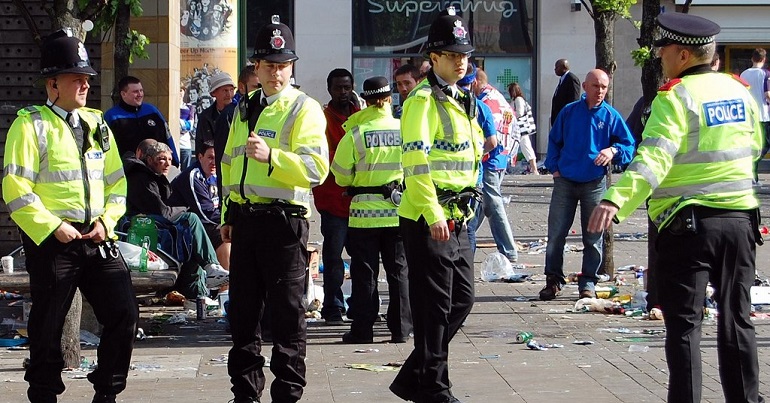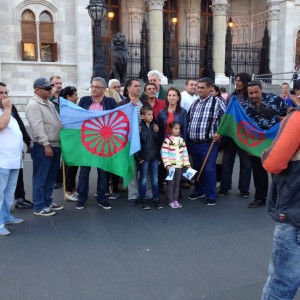From monotony to farce: my Fortnum and Mason’s trial
“Which judge have you got?”. That this is the first question asked by anyone familiar with the justice system perhaps says all you need to know about its operation. Throughout our case, I had ringing in my ears the wisdom of a QC I met in 2009 when we took the Treasury to court over the RBS bail-out: “people have this bizarre notion that the British justice system is based on some kind of mixture of legislation and logic” he would tell us. “Get that idea out of your head immediately. What matters is which judge you get, what mood he – and it will be a man – what mood he is in, how much sleep he had, his personal prejudices, and perhaps, maybe, some of the internal politics of the court.”
After that case, another lawyer – a partner at a well known firm – opined “if that’s the justice system in this country, it’s time for a fucking revolution”. If arbitrary decisions by judges sitting with no jury are one element of England’s legal system then another ingredient I was surprised to find is farce.
Most of those arrested in Fortnum and Mason on 26 March had charges dropped. The 30 who didn’t were chosen because of specific aggravating factors which demonstrated the ‘intent to intimidate’ – including ‘carrying an umbrella’, ‘holding a leaflet’ and, in my case, ‘facilitating a meeting’. Roughly half of the defendants had our names spelt wrong on the court record. Before our trial even began, one of us had our charges dropped because they had accidentally been left off a list. At one point, the prosecution barrister triumphantly asked one of his key witnesses if they had seen any behaviour inside the store which they believed to be criminal. The man replied with one word: “no”. The police officers held their heads in their hands: this is not the carefully prepared theatre of Holywood courtroom dramas.
Another witness – who they had brought in to prove that we were intimidating – said nothing of the sort. Instead, he declared, with an amused glint in his eye, that the situation was chaos: “in the middle of all of these protesters, a man kept approaching me and insisting he wanted to buy a kilo of pink marshmallows”. Later, the woman who ran the confectionary stand on the day returned to this theme. She went to great lengths to explain the confusion caused by this man who couldn’t understand that marshmallows aren’t sold by the kilogram. In his written witness statement, the shop manager claimed that he had seen someone steal, open and swig from a bottle of champagne. “I was horrified” he wrote “that anyone would drink champaign before it was chilled”. During his appearance, the lawyers sought to establish where various events in the shop had taken place – ‘where did this happen…’: ‘by the Old Door’; ‘and that?’ ‘by the confectionary stand’ ‘and where was the stolen champagne from?’ “Highgrove, of course.” Even the judge couldn’t stifle his laugh.
In the end, the most aggressive behaviour which the prosecution could level at any of the individuals on trial was footage of a game of beach volleyball inside the shop. Their assertion that, in the context this terrified customers was at always absurd. It became comical when, later in the case, our barrister showed CCTV footage of first a police officer, and then a customer, joining in.
At the first climax of the case, right before he pronounced his decision, Judge Snow looked at our representative and said “you aren’t expecting me to rule on article ten and eleven rights are you?”. Richard – our barrister, whose boiling intellect had already melted judge Snow, if only he had noticed, looked a little exasperated. He had mentioned the European Convention numerous times throughout the trial. But he repeated, in the way that a patient parent might politely re-iterate an instruction to a toddler, that yes the judge did need to consider our right to protest in a case all about, err, the right to protest. The judge declared that he would therefore need yet another full day to come to a verdict. The following day, he turned up twenty minutes late to announce his decision.
But in a bizarre narrative structure, before the farce comes the boredom. Because the truth is that the main experience of this trial was not the week in court, but the months of preparation. We are on email number 88 from our solicitors. Most run to hundreds of words, and each demonstrates the careful thought and passionate work with which they have launched themselves at this case. Each is important and relevant, and each represents more work when I return late at night from the office. In fact, most have themselves been sent long out of office hours by a legal team working for us largely in their spare time for little or no pay.
Of that team, it is two paralegals at Bindmans whose work delivered the backbone of these communications. And it is they who have borne the brunt of this monotony. When the prosecution accidentally copied one of our lawyers into an email discussing our request for all three hundred hours of CCTV, it showed them saying they would create ‘the most boring and uncomfortable cinema on earth’.
I am told that, much to the mirth of their housemates, the paralegals stuck the photos of each of the defendants around their bedroom walls. They then settled down for weeks to watch hundreds of hours of footage. These endless dry eyed weeks of pausing and replaying of silent grainy footage of our protest – in many cases, including mine, working essentially for free – demonstrate a deep passion and solidarity. The willingness to fight for justice against the adrenalin filled rush of a police horse is one thing. The capacity to keep a flame alive through the crushing, airless monotony played out in months of DVD after DVD showing the same essentially monotonous events from one angle after another is a prospect I couldn’t face.
But it was this work which delivered the great reveal of our case – debunking the gross exaggeration of the key prosecution witness. She had closed the first day with a story of how a gang of protesters had surrounded her, pointed at her, and shouted in her face for around half an hour. With a magicians flourish, our lawyers produced in just 5 minutes, from a vast pile of disks, the relevant CCTV DVD. This showed that, whilst her stall was in the midst of a large crowd, the events as she described them simply didn’t happen. Clearly the telling and retelling of the story had distorted it entirely in her head. Clearly the prosecution lawyers relying on her testimony hadn’t done their research. Thank God, or, rather, Bindmans, that ours had.
Throughout the trial, in the breaks between witnesses, the ten defendants and three or four lawyers would congregate in a small stuffy meeting room more fitting for two. In these discussions, our lawyers would map out for us every potential legal alley down which the prosecution might run, or which the judge might use as an excuse to convict us. ‘This law’, we would be told, ‘was contingent on that factor, and so we will just need to say this’. Or, ‘if they go down that route, then this will be our response, but they probably haven’t thought of that’. When it came to it though, the prosecution didn’t bother with any of the subtlety of actually making a legal case. They just read out the witness statement from the woman earlier in the case whose testimony had essentially been disproved by the CCTV. And when the judge came to his ruling, he too ignored the subtleties of actually justifying his case in law. Essentially, despite two and a half days of thought, he went for the random opinion generator option: “oh, errr, guilty”.
For me, the verdict isn’t a huge problem: in the world I inhabit it is not abnormal (and perhaps that tinges the tone of this piece). For some of my co-defendants, it is: at least one of us could well lose his job over it. For others, being declared a criminal hurts.
The support we had from our legal team was matched only by the mutual solidarity I felt from my co-defendants. We were essentially ten random people who had been at that protest that day. And yet I was delighted to find each of them to be supportive, helpful, intelligent and interesting. The only moment during the trial where I was moved by anything more than boredom or farce was when the character witness statements were read out for each of us, outlining the outstanding place my co-defendants held in the eyes of their respective communities.
In both our lawyers and my co-defendants, I was lucky. Unlike many others, I wasn’t isolated by the legal system, wasn’t sent to face the cold justice system alone. Likewise I am a privileged white man, and was able to feel at home surrounded by lawyers and judges – people much like those with whom I studied at university or who my parents knew when I was growing up. For most who sit in the dock, this is not the case. For most, the combination of monotony and farce is surely overwhelmed by a third feeling – terror.
And so whilst my experience of our trial was a bizarre mixture of boredom and comedy, with a swirl of pink marshmallow through the middle and a (tepid) champagne sauce, the truth about the legal system is surely this: most involved have little clue what they are doing: as the blundering prosecution showed, if you are on the side of the powerful, you don’t need to. Judges wobble back and forth within the blurry parameters of their role as defenders of a system in crisis. If, like us, you have excellent lawyers battling your corner, you have a hope. If not, you don’t.
We have been ordered to pay £1000 each in prosecution costs. Whilst we can’t fundraise for that, the trail placed a significant financial burden on many of my co-defendants, with long journeys to travel from across the country, accommodation to find in London, etc. You can help by donating here.




The spirit of versus Jarndyce lives on.
Well done Adam!
And good luck!
Wonderful article! So funny – and yet so appalling….
As an aside, it’s silly that there isn’t a publicly funded system that collects judgements. BAILII is a great resource but does not collect judgements from the lower courts.
Wishing you the best for your appeal.
@ukliberty – I don’t have one, but can try asking the lawyers…
Will you post a copy of the judgement?